Renewed Fire Threat Sparks Exodus To Australian Cities
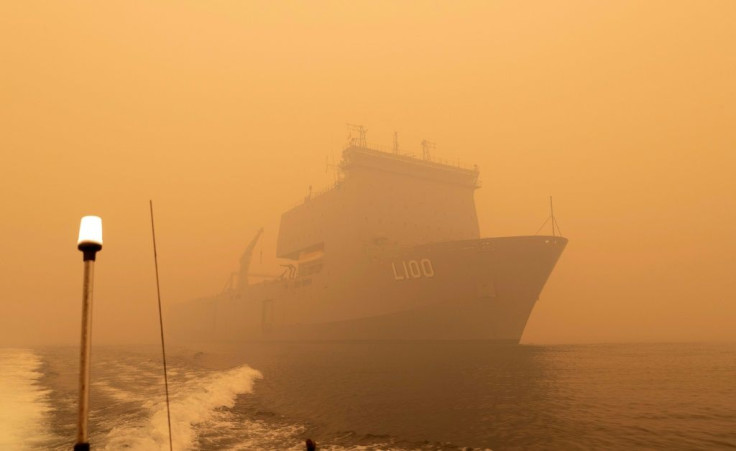
Beleaguered Australian communities braced for yet more catastrophic bushfire conditions expected on Saturday, as Australia's navy evacuated around one thousand people from a southeastern town.
In the town of Mallacoota, residents and tourists hemmed to the foreshore since New Year's Eve fires clambered aboard landing craft with family, pets and a few belongings.
By late Friday, around 1,000 had been taken to the HMAS Choules and the MV Sycamore, which were to sail down the coast to safety.
The scale of Australia's unprecedented months-long bushfire crisis has shocked the country and the world.
Since late September, at least 20 people have died, dozens have gone missing, more than 1,300 homes have been damaged and an area roughly double the size of Belgium or Hawaii has burned.
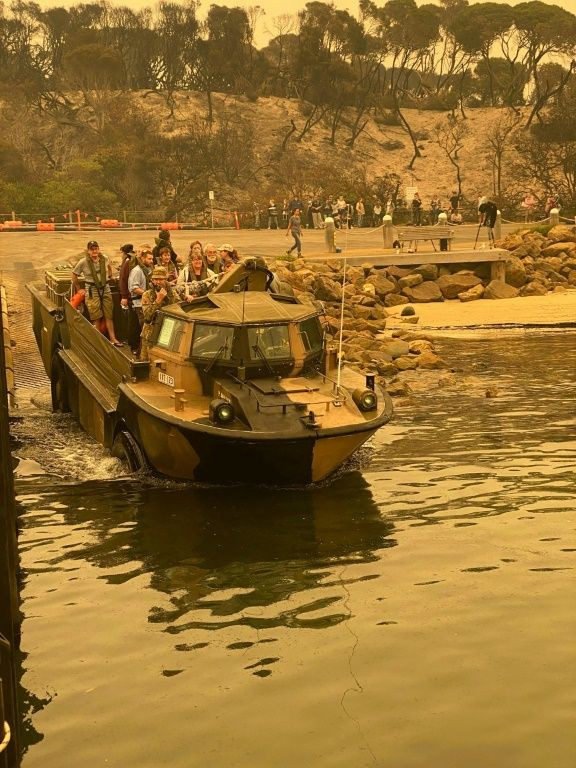
But experts predict Saturday could bring even more devastating conditions with temperatures expected to rise well above 40 degrees Celsius (104 Fahrenheit).
A state of emergency has been declared across much of Australia's heavily populated southeast and more than 100,000 people have been told to leave their homes across three states.
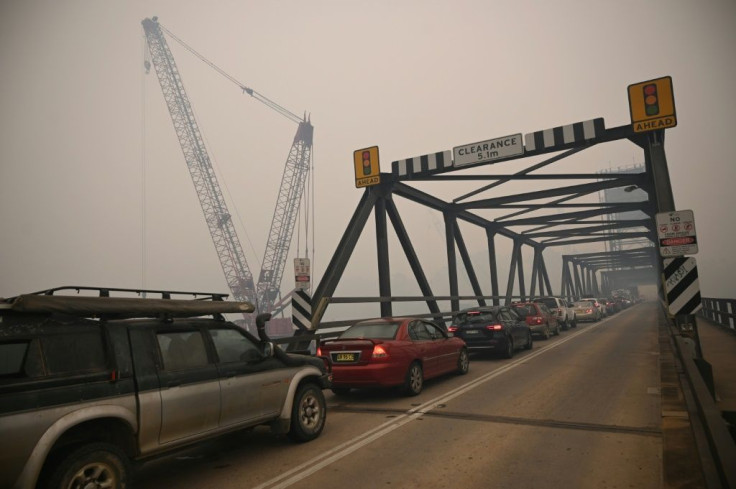
"There is still a window for people to leave," said New South Wales premier Gladys Berejiklian. "If you don't need to be in the area, you need to leave."
Thousands of tourists, heeding that warning, abandoned their summer holidays on a popular 300-kilometre (190-mile) length of the southeastern coastline, prompting queues of cars stretching toward Sydney and Canberra.
On the road north of Nowra, families sat amid the haze in cars loaded with dogs, surfboards and bicycles, with traffic at a virtual standstill.
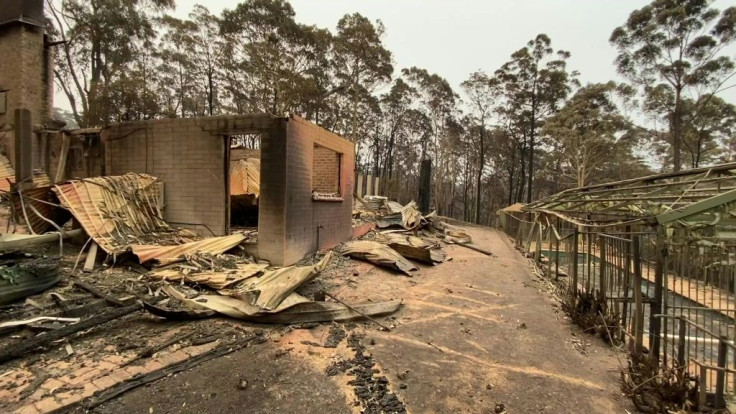
Eloise Givney, 26, escaped from the blazes with a police escort after she and a large group of family members spent four days isolated without power, phones or internet.
"The fire came within about 50 metres of us and we drove through fire, because there's only one road in and one road out," she told AFP, adding the flames soared 15 metres high on either side of the road.
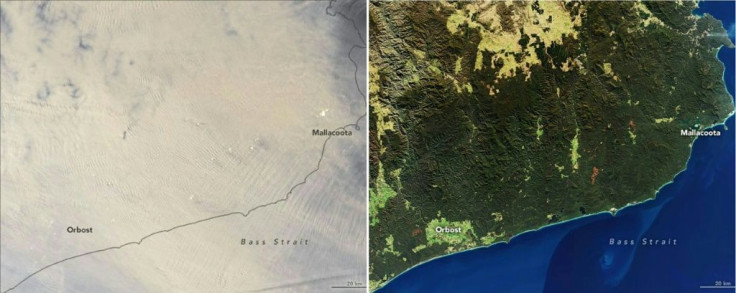
"We've been stuck without power for four days now. We haven't been able to feed the kids -- we've got five kids with us -- and we ran out of food about a day ago."
New South Wales Transport Minister Andrew Constance called it the "largest evacuation of people out of the region ever".
The Bureau of Meteorology's Jonathan How said Saturday's "conditions are set to mirror or even deteriorate beyond what we saw on New Year's Eve."
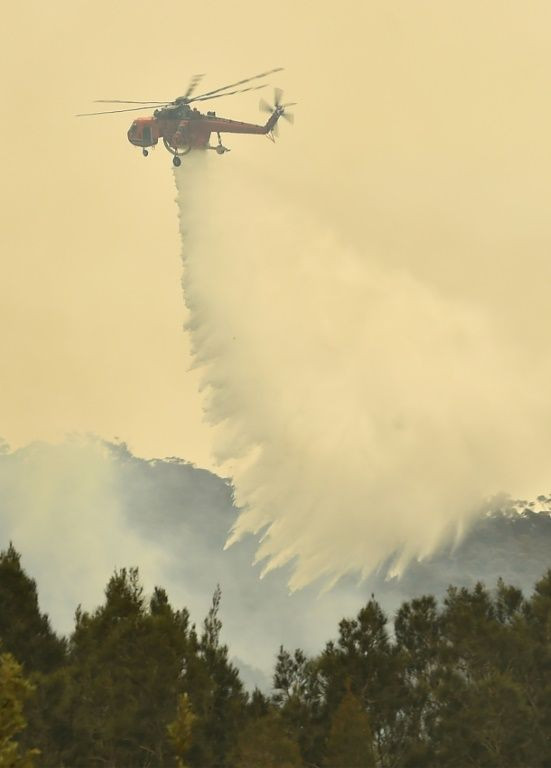
"Strong, dry westerly winds will cause ongoing fires to flare up yet again threatening communities that have already experienced widespread devastation."
That front arrived in South Australia on Friday, prompting an emergency warning on Kangaroo Island where it threatens to consume an entire national park.
Facing vast fire fronts, volunteer firefighters have been struggling to cope.
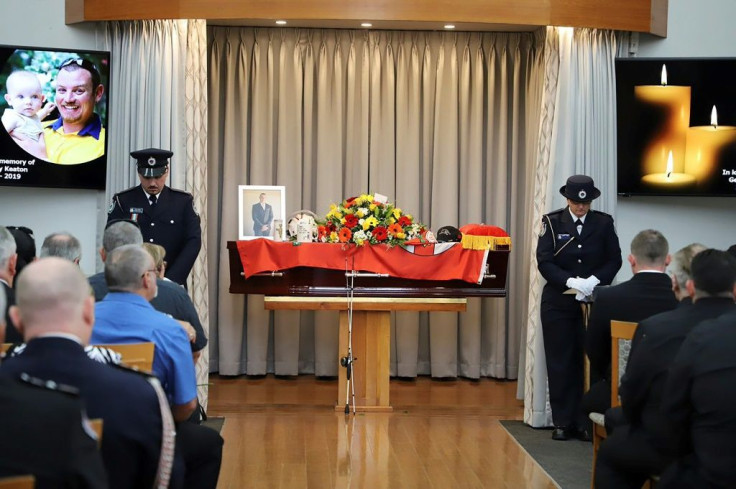
Adam Harris, captain of the Rural Fire Service in Sussex Inlet -- which was hit by the New Year's Eve blazes and remained under threat -- told AFP there were not enough fire crews on the ground.
"Every resource is being used, that's the thing. There's so much fire on the ground that you've got to use every resource. We don't have enough trucks to be everywhere."
Conservative Prime Minister Scott Morrison -- who was pilloried for holidaying in Hawaii as the country was ablaze and resisting calls to pay exhausted firefighters -- has come under renewed criticism for his handling of the crisis.
Visiting the hard-hit town of Cobargo, Morrison encountered a tearful young mother and a volunteer firefighter who both refused to shake his hand.
He returned to his motorcade amid a volley of swearing and abuse. "You won't be getting any votes down here, buddy," one resident yelled.
Morrison's Liberal ally and local parliamentarian Andrew Constance told 7 News that "the locals probably gave him the welcome that he probably deserved".
"The feeling is bloody raw."
Morrison later acknowledged that "people are frustrated".
"I understand how people are feeling and however they wish to respond is a matter for them," he said. "I don't take it personally."
With no sign of a let-up in the fires, Morrison has cancelled a visit to India planned for January 13.
He had a telephone conversation Friday with Indian Prime Minister Narendra Modi, who conveyed his condolences and said he looked forward to welcoming Morrison to India "at a mutually convenient time later in the year," the Indian foreign ministry said.
The crisis continued to touch cities like Sydney and Melbourne, where thick smoke has become the norm and fires have licked at suburban areas.
"I just feel nervous. I feel uneasy," Melbourne resident Tui Lyon told AFP.
"I don't really feel like you can go about your daily business without having that feeling in your stomach -- just concern for loved ones and just completely overwhelmed by the smoke."
© Copyright AFP 2024. All rights reserved.





















